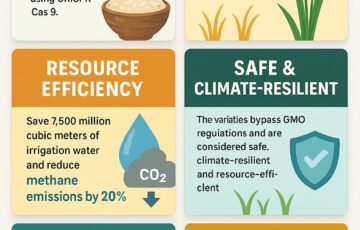Mental Health in India’s Material World
Syllabus:
GS 2:
- Issues relating to development and management of sectors like health
Focus:
Mental health issues in India are escalating due to work-related stress, materialism, and societal pressures. The theme for World Mental Health Day 2023 emphasizes prioritizing mental health in workplaces, highlighting the growing need for attention in this area.
The Mental Health Crisis in India:
- Rising cases: Increasing cases of suicide among professionals point to a severe mental health crisis in India, driven by work pressures and unrealistic societal expectations.
- Mental disorders surge: According to The Lancet, 197 million Indians suffer from mental health conditions like depression, anxiety, and substance abuse, worsened by urbanization and societal pressures.
- Pursuit of wealth: The obsession with productivity and material wealth often overshadows the need for self-awareness, leading to disconnection and emotional distress.
- Existential neglect: Essential life questions about purpose and fulfillment are often neglected in the relentless chase for success, deepening the mental health crisis.
- Socratic reflection: Ancient wisdom from Socrates and Aristotle emphasized self-reflection and virtuous living, which contrasts starkly with modern materialistic pursuits.
Rising Stress and Anxiety:
- Urban stressors: Urban living and financial instability exacerbate stress, pushing individuals into depression and anxiety, despite achieving material success.
- Isolation: A focus on luxury and status fuels a culture of comparison, leading to feelings of inadequacy and further mental health deterioration.
- Materialism’s failure: Material wealth provides only temporary relief, failing to fulfill emotional needs, leading to disillusionment and purposelessness.
- Cultural pressure: The emphasis on consumerism drives people to seek validation through possessions, neglecting deeper, more meaningful connections.
- Trapped in affluence: The pursuit of wealth often isolates individuals from meaningful relationships and purpose, trapping them in cycles of dissatisfaction.
Collective Action as a Solution:
- Community over individuality: Shifting from individual success to collective well-being can address the mental health crisis by fostering supportive communities and strong social bonds.
- Work-life balance: Legislative proposals to increase work hours, like Karnataka’s amendment bill, threaten work-life balance and exacerbate stress and mental health issues.
- International examples: Initiatives like Brazil’s community gardens can help Indian society reconnect through shared responsibility and foster a sense of belonging.
- Breaking isolation: Urbanization and consumerism isolate individuals; promoting collective activities like community gardening can counteract these effects.
- Empathy and mindfulness: Community living fosters empathy, reducing competition and providing a foundation for emotional well-being.
Consumer Choice and Mental Health:
- Freedom misconception: Many Indians equate consumer choice with freedom, prioritizing material wealth over deeper values like fraternity and equality.
- Inadequacy cycle: The consumerist mindset creates a cycle of inadequacy, as people constantly strive to meet rising material standards, leading to mental health issues.
- Well-being focus: Prioritizing connection and community over consumption offers a healthier foundation for emotional and social well-being.
- False measures of happiness: Happiness is often equated with purchasing power, leading to an endless cycle of consumption with little impact on long-term mental health.
- Rethinking success: A shift from materialistic definitions of success to more holistic views of well-being is crucial for societal progress.
Key Initiatives tackling Mental Health
National Mental Health Programme (NMHP):
- Initiated in 1982 and restructured in 2003, NMHP aims to modernize mental health facilities.
- The District Mental Health Programme (DMHP), launched in 1996, focuses on community-based mental health services across 716 districts.
National Tele Mental Health Programme (NTMHP):
- Launched in October 2022, NTMHP enhances access to quality mental health services.
- NIMHANS coordinates 36 Tele-MANAS cells in 25 states/UTs, handling 63,806 calls nationwide.
NIMHANS and iGOT-Diksha Collaboration:
- NIMHANS offers psychosocial support and online training for health workers via the iGOT-Diksha platform, enhancing mental health care through capacity-building.
Ayushman Bharat – Health and Wellness Centres (AB-HWCs):
- AB-HWCs, under Ayushman Bharat, offer preventive, promotive, curative, rehabilitative, and palliative care services, addressing mental, neurological, and substance use disorders (MNS) with dedicated operational guidelines.
Way Forward for Mental Health:
- Promoting mindfulness: Programs encouraging mindfulness and emotional learning can help foster a culture that values mental health and well-being.
- Strengthening community: Collective action, such as promoting community living and shared responsibility, can help address the isolation caused by modern lifestyles.
- Policy intervention: Social policies that reduce inequality and provide mental health support are essential in addressing the root causes of the mental health crisis.
- Refocusing on values: Moving away from materialistic goals and focusing on meaningful relationships and community connections can offer long-term mental health benefits.
- Building a connected society: A healthier society is built on shared values of empathy, equity, and mental well-being, ensuring that individuals feel supported and valued.
Conclusion:
India’s mental health crisis stems from societal pressures, consumerism, and disconnection from meaningful living. By prioritizing community and well-being over material success, a healthier and more fulfilling future can be achieved, fostering mental and emotional resilience.
Mains Practice Question
Examine the growing mental health crisis in India, emphasizing the role of materialism and work-related stress. Propose solutions to address the issue, focusing on community living and policy interventions.
Source: The Hindu






